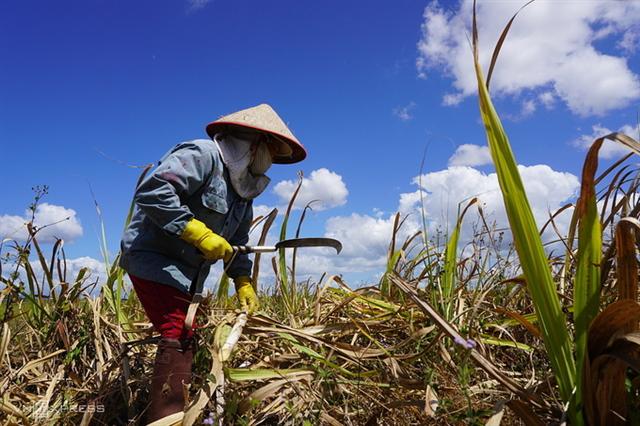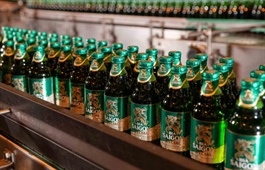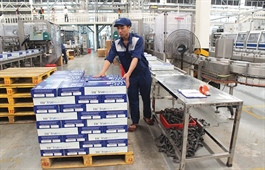Sugar producers accuse Thai firms of dumping
Sugar producers accuse Thai firms of dumping
Thai companies are allegedly dumping sugar in Vietnam and hurting farmers, according to Vietnamese producers.
A farmer cuts sugarcane in the central highlands province of Gia Lai. Photo by Duc Hoa.
|
Nguyen Van Loc, general secretary of the Vietnam Sugarcane and Sugar Association, said citing figures from Thailand’s Office of Cane and Sugar Board the average export price of Thai raw and refined sugar is $334 per ton though the cost of sugarcane alone to produce a ton is $410.
The Thai government in April unveiled a support package of $325 million to sugarcane farmers hit by drought though Brazil had earlier filed a complaint to the World Trade Organization that Thailand had given support to cane growers that was inconsistent with international trade agreements, Loc said at a forum on Monday.
A decree issued by the Thai government in March showed signs that it was limiting imports to protect domestic producers, he said.
The influx of cheap Thai sugar is hurting Vietnamese companies and farmers.
Tran Ngoc Hieu, CEO of Soc Trang Sugar Jsc in the southern province of the same name, said the area under sugarcane in his province has dropped by over 71 percent since 2017 to 2,400 hectares, and is set to fall to 2,000 hectares next year.
Annual production has fallen 64 percent to 170,000 tons this year, he said. The competition from Thai sugar is the main reason for the declining figures, he added.
Thai sugar is also smuggled into Vietnam, and whenever smuggled goods are seized, domestic sugar sales rise.
Tran Thi Yen, a sugarcane farmer in the central province of Phu Yen, said: "Many sugarcane farmers have reduced their farming area or abandoned the farming due to losses."
The Trade Remedies Authority of Vietnam is conducting anti-dumping and anti-subsidy investigations into Thai sugar.
Under ASEAN commitments, Vietnam has to allow unlimited sugar imports from member countries at 5 percent tariff.
Imports of sugarcane in the first nine months surged five fold year-on-year to 1.06 million tons, with nearly 90 percent of it from Thailand, according to the Trade Remedies Authority.

























